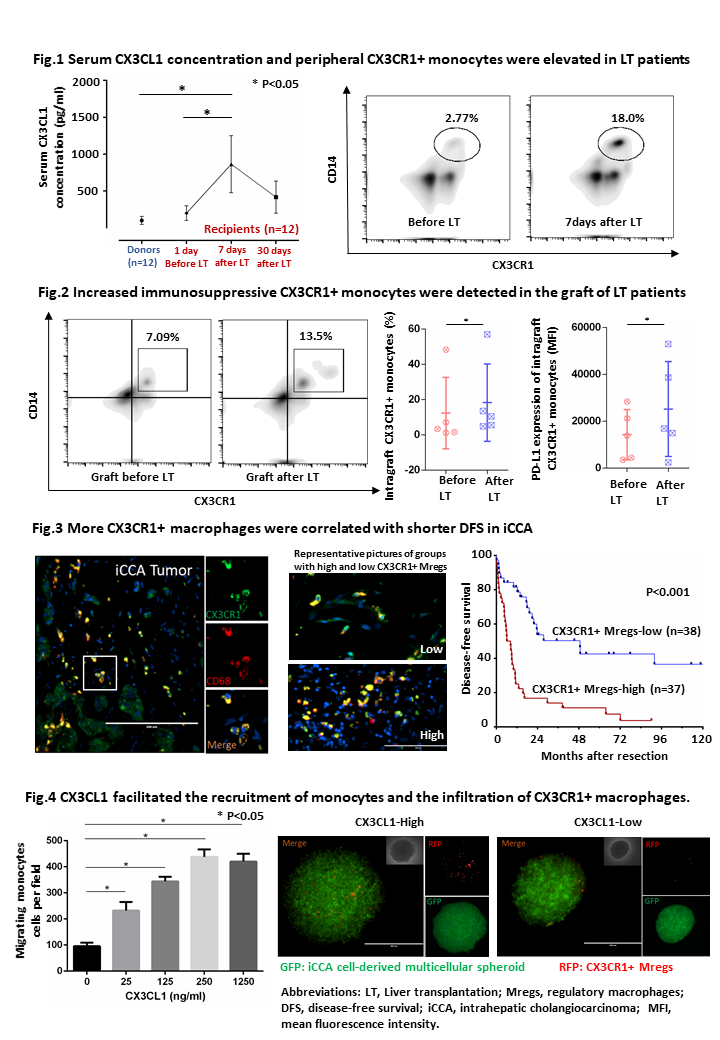CX3CL1/CX3CR1 axis facilitates recruitment of regulatory macrophages to promote tumor recurrence after liver transplantation for intrahepatic cholangiocarcinoma
Jiye Zhu1, Li Pang1, Oscar W.H Yeung1, Jiang Liu1, Hui Liu1, Xinxiang Yang1, Kevin T.P. Ng1, Tanto Cheung1, Kwan Man1.
1Department of Surgery, HKU-SZH & LKS faculty of medicine, The University of Hong Kong, Hong Kong, Hong Kong
Background: Intragraft regional immunoregulation on tumor microenvironment may play a critical role in intrahepatic cholangiocarcinoma (iCCA) recurrence after liver transplantation (LT). Regulatory macrophages (Mregs) have promising potentials for the treatment of graft rejection due to the potent immunosuppressive function. However, Mregs were also reported to promote tumor growth and immunoevasion. Here, we aim to investigate the role and mechanism of Mregs on iCCA recurrence after curative surgical treatment.
Methods: Gene expression profile from our institute and TCGA were analyzed to explore the possible interaction between iCCA and monocytes. The serum CX3CL1, peripheral and intragraft CX3CR1+ monocytes were assessed in LT patients. A total of 75 patients who underwent resection for iCCA was included and prospectively followed-up since 2001 for survival analysis. The phenotypic analyses of Mregs from fresh iCCA tissue were conducted by flow cytometry. The effects of Mregs on iCCA were evaluated in vitro and in the humanized NSG mice model.
Results: 1. Elevated serum CX3CL1 concentration and peripheral CX3CR1+ monocytes were detected in post-transplantation patients (Fig.1). 2. Compared with the graft before LT, intragraft CX3CR1+ monocytes and the PD-L1 expression on CX3CR1+ monocytes were increased in the graft after LT (Fig.2). 3. More infiltrated CX3CR1+ Mregs was detected in iCCA tumor tissue both after LT and hepatectomy (Fig.3). The higher number of CX3CR1+ Mregs in iCCA tissue was correlated with shorter disease-free survival (DFS) in iCCA patients after curative surgery (Fig.3); 4. In the multivariate model, CX3CR1+ Mreg was identified as an independent prognostic factor for DFS (HR:3.400, 95%CI: 1.900-6.084, P<0.001). 4. Elevated CX3CL1 facilitated recruitment and infiltration of Mregs (Fig.4).
Conclusion: Enhanced CX3CL1/CX3CR1 interaction facilitated intragraft Mreg infiltration, which subsequently promoted iCCA recurrence after LT.
